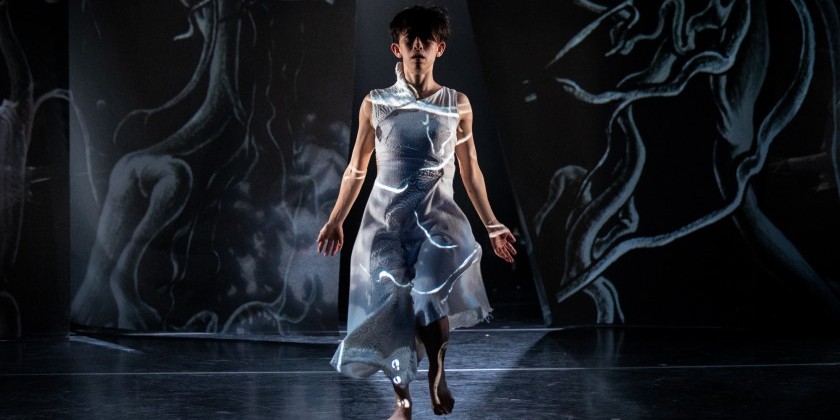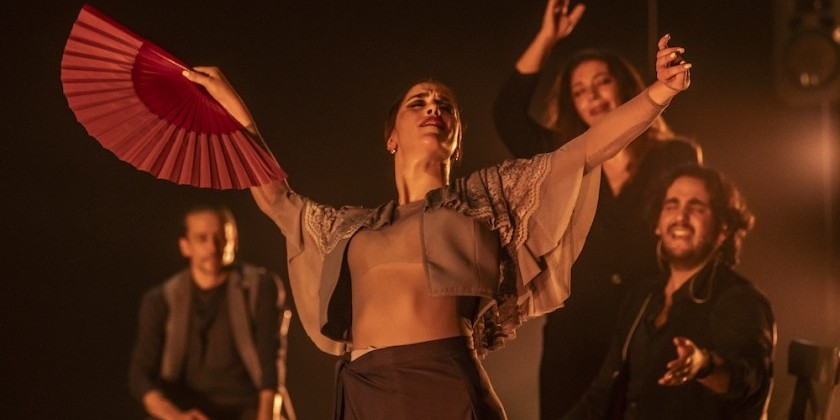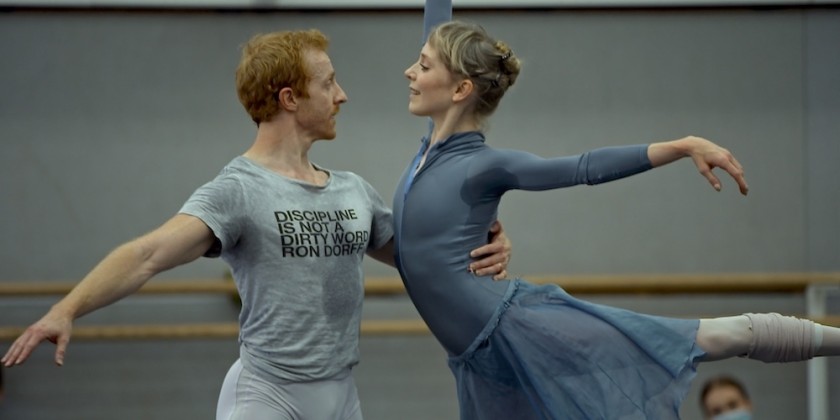IMPRESSIONS: "Fruits borne out of rust" at Japan Society with Tabaimo and Maki Morishita

March 6, 2020
Artist/musician: Tabaimo
Choreographer: Maki Morishita
Musicians: Yusuke Awazu, Keisuke Tanaka
Dancer: c Mamiya
Artist/musician Tabaimo is not just a playful animator; she is also courageous. As the audience settles into their chairs, this small woman in a baggy black jumpsuit draws on a classroom whiteboard. Upside-down bare feet appear before enormous bubbles as she writes her title: FRUITS BORNE OUT OF RUST.
Often one can take performances at face value, and then sometimes one has to consider double entendres, hidden within images and gestures. Particularly when experiencing a production emanating from a culture (in this case, Japan) whose taboos are quite contrary to ours. Travelers to Japan are advised never to show the soles of their feet. Could Tabaimo's drawing be a war cry, a renunciation of any such restrictions?

After Tabaimo finishes her illustration and exits, another man promptly erases her work. This slap-meets-counter-slap — artist versus society, perhaps — cleans the slate for a projection of a torso and head. Below the whiteboard appear bare legs. One foot naughtily slides up a leg, prompting giggles from the audience.
Both born in 1975, Tabaimo and collaborating choreographer Maki Morishita are on a four-stop tour of the US. Japan Society in NYC is the last after performances at LA's REDCAT, Wesleyan University's Center for the Arts, and the John F. Kennedy Center for the Performing Arts.

This multi-media production invites as many interpretations as any dream. The title, Fruits borne out of rust, is a play on the Japanese expression mi kara deta sabi, or "rust from the body (of a sword)."
Chiharu Mamiya, the pixie-haired dancer, slowly gains strength and elegance so that by the close of the performance, she seems empowered by her reveries. We see her transformed from a timid, barely mobile waif in a white slip to a rebel in graffitied short shorts to a self-assured sophisticate in an asymmetrical white textured dress.

Mamiya expresses much with each move: whether curled on the floor, her back to the audience, venting madness and anxiety, speaking into a microphone, clawing the air, or leaping weightlessly. She often becomes engulfed in the projected environments of rooms covered with tatamis, an enormous cage shared with a dove whose wings oddly beat in time with live rock music, and trees. Branches rise and twist among themselves to conjure thoughts of fire, fertility, and growth.
From the trap of domesticity to zones of wild unknowns, Tabaimo prods us to break free of any inhibiting barriers.














